MercoPress. South Atlantic News Agency
Health & Science
-
Wednesday, August 26th 2020 - 09:50 UTC
Colombian quarantine will move to “selective” beginning September first

Colombia will enter a period of “selective” quarantine when its five months of national coronavirus lockdown ends at the close of August, President Ivan Duque said on Monday, and will be part of Johnson & Johnson vaccine trials.
-
Wednesday, August 26th 2020 - 09:25 UTC
Another member of the Bolsonaro family tests positive for coronavirus
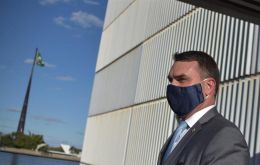
Brazilian Senator Flavio Bolsonaro, the eldest son of president Jair Bolsonaro, has tested positive for the novel coronavirus, according to a statement by Flavio's spokesman.
-
Wednesday, August 26th 2020 - 09:14 UTC
Spain appeals to the army to help expose people infected with coronavirus
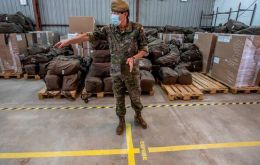
Spain will call in the army to help identify those who have been exposed to people infected with coronavirus as part of efforts to curb the spread of the disease, Prime Minister Pedro Sanchez said on Tuesday.
-
Wednesday, August 26th 2020 - 09:00 UTC
Young people driving the spread of coronavirus in the Americas, Pan American Health Organization
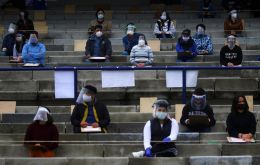
Young people are driving the spread of the coronavirus in the Americas, the head of the Pan American Health Organization (PAHO) said on Tuesday, noting that both deaths and caseloads have doubled in the region over the past six weeks.
-
Tuesday, August 25th 2020 - 09:30 UTC
Argentina confirms 8,713 new cases of Covid-19 and 381 deaths in the last 24 hours

Argentina confirmed a record 8,713 new cases of coronavirus on Monday and 381 resulting deaths in just 24 hours, as the country battles a surge of contagions. The country's health ministry said that just weeks into a stricter quarantine in the capital Buenos Aires and its suburbs, cases were now springing up in other regions of the country.
-
Tuesday, August 25th 2020 - 08:14 UTC
Nightclub owner where thirteen peoples died crushed condemned in Peru
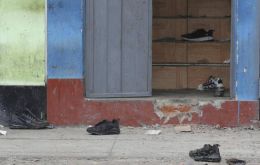
Peruvian government officials condemned the owner of a nightclub after at least 13 people were crushed to death or asphyxiated as partygoers tried to flee a party raided by police because it violated coronavirus restrictions.
-
Monday, August 24th 2020 - 09:27 UTC
Chilean Electoral Service will establish safety protocols for the October plebiscite

The Chilean congress passed a measure to ensure that safety protocols will be regulated at voting booths during the coming plebiscite this October. The measure states that the Electoral Service will dictate health safety rules regarding social distancing for voting throughout the country.
-
Monday, August 24th 2020 - 09:26 UTC
Peru: Thirteen people crushed to death as they try to flee a clandestine party raided by police

At least 13 people were crushed to death or asphyxiated as partygoers tried to flee a Lima nightclub after it was raided by police for hosting a party in violation of coronavirus restrictions.
-
Monday, August 24th 2020 - 08:25 UTC
Covid-19 controversy in Punta Arenas: Chief Medical Officer resigns following ministerial criticism
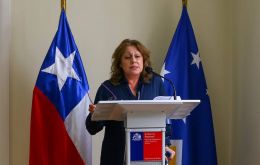
The Chief Medical Officer from Magallanes Region, extreme south of Chile resigned following an outbreak of Covid-19 cases in Punta Arenas and serious statements from the Chilean minister of Health which were interpreted as criticisms towards the management of the pandemic
-
Monday, August 24th 2020 - 08:13 UTC
UK chief medical officers: “Children should return to school, missing is a bigger risk”

The chief medical officers of the United Kingdom have said children should return to school after the summer holidays, warning that missing out on their education posed much bigger risks to them than catching COVID-19.